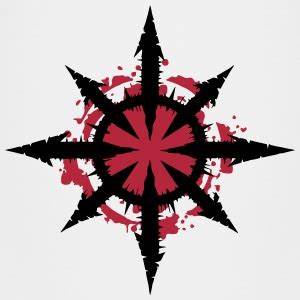He saw what Ea-Nasir did to the copper to make it poor quality 👁️
When that sea peopussy got me acting unwise
Watching the Sea Peoples row ashore: I bet you are wondering how I got here.
Just normal stuff. This is a normal person just hanging out.
The IOF spermjacking commandos in action
Kissinger the Broadway musical.
“Oh no that wasn’t a fart!”
When u nut but she keeps suckin
watching Nicki Minaj and UlyssesT sneak over Kissinger’s fence with stakes on their belts and pocketsful of garlic
He learned about how the Fascists repeatedly assaulted Libyan Jews in the 1920s and later.
Quoting Jens Hoppe in The Holocaust and North Africa, pages 54–5:
The fundament for the persecution of the Jews in Libya was built by the Italian fascists. To understand how they treated the Jewish minority, we need to go back to the early 1920s. In this section I also make clear that the “first” responsibility for anti‐Jewish violence in chronological order goes to the [Fascists].
Soon after fascist rule began in Italy at the end of October 1922, skirmishes broke out between Italians and local Jews in Libya, a colony that would to a certain degree be in a state of war until 1931. Thus in August 1923 Italian soldiers and fascists in Tripoli’s Jewish quarter, the hara, violently attacked the Jews, who defended themselves; some of the attackers also suffered injuries. In October 1923 an Italian soldier eventually died from the injuries he had suffered in the hara.19
Michele Sarfatti points out that the [Fascist] protagonists acted without orders from the government in Rome and represented an extreme trend in the fascist movement. They were, nevertheless, part of the fascist movement, intentionally acting as fascists and specifically attacking Jews.20 Similar sporadic attacks also occurred in Italian towns, for example, Livorno and Trieste in 1923, Florence in 1925, and Padua in 1926.
In Italy the target was Jews (or Jewish facilities, which were also attacked)—and other anti‐fascists—who were considered opponents of the fascist system. In this way, the specific anti‐Jewish line of attack conjoined with the direction of national politics.21
Apart from the early attacks (which were attributed to the fascists and took place following the seizure of power and the period in which [Fascist] authority was being secured), further anti‐Semitic actions were also carried out in Libya. For example, in 1932 fascists made several attacks on Jews in Tripoli. At the end of 1936 a decree that forced shops to open on Saturdays resulted in the whipping of two Jewish proprietors who kept their shops closed on Sabbath to observe the prohibition of labor on that weekly Jewish holiday.22
Renzo de Felice argues that this was not an anti‐Semitic action because Muslim inhabitants were also whipped in Libya as punishment for violating [Fascist] orders.23 In so arguing, however, de Felice completely overlooks the fact that the requirement to open on Saturdays put only the Jews in a difficult situation and was in fact aimed directly at them. The Jewish side certainly perceived the various attacks by fascists as anti‐Semitic, as Sarfatti can prove of the earliest incidents in Tripoli (with reference to a letter written in 1923).24
Referring to the Libyan events, Thomas Schlemmer and Hans Woller also share this point of view that under certain circumstances the potential violence of Italian fascism was directed at Jews, who were explicitly attacked as Jews.25
The first phase of the anti‐Jewish actions in Italy and the [Fascist] colonies was characterized by occasional violent attacks and by rare anti‐Jewish propaganda, which was spread from the start and gradually increased with time. As Schlemmer and Woller note, an anti‐Semitic fever rose steadily after the fascists came to power.26
(Emphasis added.)
(That’s the reaction that I had, anyway.)deleted by creator







